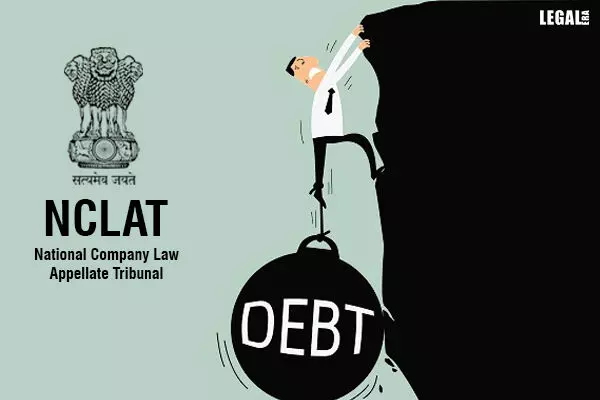- Home
- News
- Articles+
- Aerospace
- Agriculture
- Alternate Dispute Resolution
- Banking and Finance
- Bankruptcy
- Book Review
- Bribery & Corruption
- Commercial Litigation
- Competition Law
- Conference Reports
- Consumer Products
- Contract
- Corporate Governance
- Corporate Law
- Covid-19
- Cryptocurrency
- Cybersecurity
- Data Protection
- Defence
- Digital Economy
- E-commerce
- Employment Law
- Energy and Natural Resources
- Entertainment and Sports Law
- Environmental Law
- FDI
- Food and Beverage
- Health Care
- IBC Diaries
- Insurance Law
- Intellectual Property
- International Law
- Know the Law
- Labour Laws
- Litigation
- Litigation Funding
- Manufacturing
- Mergers & Acquisitions
- NFTs
- Privacy
- Private Equity
- Project Finance
- Real Estate
- Risk and Compliance
- Technology Media and Telecom
- Tributes
- Zoom In
- Take On Board
- In Focus
- Law & Policy and Regulation
- IP & Tech Era
- Viewpoint
- Arbitration & Mediation
- Tax
- Student Corner
- AI
- ESG
- Gaming
- Inclusion & Diversity
- Law Firms
- In-House
- Rankings
- E-Magazine
- Legal Era TV
- Events
- News
- Articles
- Aerospace
- Agriculture
- Alternate Dispute Resolution
- Banking and Finance
- Bankruptcy
- Book Review
- Bribery & Corruption
- Commercial Litigation
- Competition Law
- Conference Reports
- Consumer Products
- Contract
- Corporate Governance
- Corporate Law
- Covid-19
- Cryptocurrency
- Cybersecurity
- Data Protection
- Defence
- Digital Economy
- E-commerce
- Employment Law
- Energy and Natural Resources
- Entertainment and Sports Law
- Environmental Law
- FDI
- Food and Beverage
- Health Care
- IBC Diaries
- Insurance Law
- Intellectual Property
- International Law
- Know the Law
- Labour Laws
- Litigation
- Litigation Funding
- Manufacturing
- Mergers & Acquisitions
- NFTs
- Privacy
- Private Equity
- Project Finance
- Real Estate
- Risk and Compliance
- Technology Media and Telecom
- Tributes
- Zoom In
- Take On Board
- In Focus
- Law & Policy and Regulation
- IP & Tech Era
- Viewpoint
- Arbitration & Mediation
- Tax
- Student Corner
- AI
- ESG
- Gaming
- Inclusion & Diversity
- Law Firms
- In-House
- Rankings
- E-Magazine
- Legal Era TV
- Events
Moratorium under Section 14 of IBC not bar for initiation of insolvency proceedings: NCLAT

Moratorium under Section 14 of IBC not bar for initiation of insolvency proceedings: NCLAT
The bench comprised of Justice Ashok Bhushan, Justice N Satyanarayana Murthy and Mr. Barun Mitra
The National Company Law Appellate Tribunal (NCLAT) held that the moratorium imposed under Section 14 of the Insolvency & Bankruptcy Code, 2016 (Code/IBC) is not a bar for initiation of proceedings against the resolution professional of a company undergoing Corporate Insolvency Resolution Process (CIRP) under Section 66 of the Code.
NCLAT held that Section 14 and Section 66 are independent provisions incorporated for different purposes and therefore, these provisions have to be read independently to achieve the objective of the Code.
The present matter arose when a Petition under Section 7 of the Code was filed against HBN Foods Ltd. (Corporate Debtor) pursuant to which CIRP was initiated. Mr. Jagdish Singh Nain was appointed as the Resolution Professional. During the inspection of the Corporate Debtor's balance sheets, the Resolution Professional found various transactions carried out between 2013-14 to 2018-19 with the intent to defraud the creditors of the Corporate Debtor.
Consequently, the Resolution Professional filed an application under Section 66 of the Code against various related parties of the Corporate Debtor which also includes companies like HBN Home Colonizers Pvt. Ltd which was also undergoing CIRP and a moratorium under Section 14 of the Code was also imposed concerning HBN Home Colonizers. The NCLT vide its order dated 13.12.2021 allowed the Section 66 Application and directed the Respondents including the Resolution Professional of HBN Home Colonizers to make contribution of INR 2687.27 Crores jointly or severely.
Aggrieved by the order of NCLT, the Resolution Professional of HBN Home Colonizers filed an appeal before the NCLAT under Section 61 of the Code.
The primary issue before the NCLAT was "Whether the Adjudicating Authority is competent to pass order under Section 66 of IBC during currency of moratorium under Section 14 of IBC? If, so whether the order in I.A. No. 2844/2020 dated 13.12.2021 is sustainable?"
NCLAT in light of Section 14 held that the provision prohibits institution and prosecution of proceedings against the Corporate Debtor but does not prohibit proceedings against the Resolution Professional of the Corporate Debtor.It was also observed that both the provisions are independent in nature and incorporated for different purposes and thus, they should be construed harmoniously to give effect to the intendment of the Code and to make it workable.
NCLAT also held that the order for making payment of INR 2687.27 Lacs was passed against the Appellant in its capacity as a Resolution Professional and not a corporate debtor and hence, there is no illegality in the order passed by NCLT.
Thus NCLAT upheld the order passed by NCLT and dismissed the appeal.



